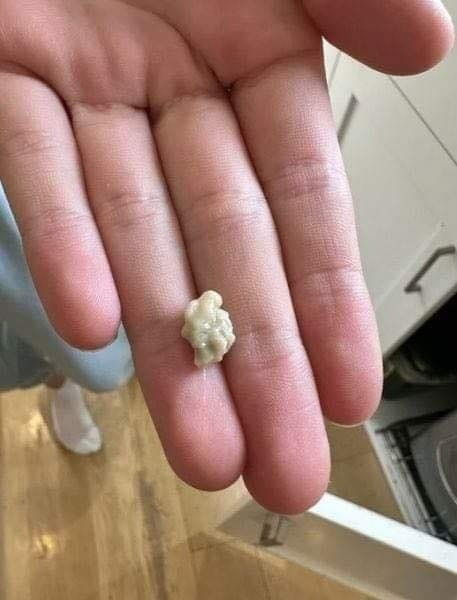Sneeze, cough, itch, repeat. This is a familiar cycle many of us experience, often dismissed as part of the body’s normal responses. However, occasionally, these seemingly mundane occurrences can lead to the emergence of something more intriguing—an exploration into how our bodies communicate and react to external stimuli. In this article, we delve into the curious incident of sneezing multiple times, followed by a tickling sensation in the throat, which ultimately resulted in relief. What triggers such events, and what might this say about our health and wellness?
Understanding Sneezing as a Reflex Action
Sneezing is a complex reflex action—a protective mechanism designed to expel irritants from the respiratory system. When a foreign substance, such as dust, pollen, smoke, or a viral pathogen, irritates the nasal mucosa, the body responds by initiating a sneeze. This reflex is an evolutionary adaptation, helping to clear the airways and protect the lungs from inhaling potentially harmful agents.
During a sneeze, multiple physiological changes occur. The diaphragm contracts forcefully, air is pushed out at high speed through the nasal passages and mouth, and the force helps to remove irritants. Thus, sneezing is not just involuntary; it is the body’s way of safeguarding itself.
The Role of the Throat: A Channel for Relief
Following the sneezing episode, many individuals may experience sensations in the throat—like a tickle or itch. This discomfort can often be attributed to several factors:
- Post-Nasal Drip: After sneezing, especially if it was related to allergies or a cold, mucus can drain down the back of the throat from the sinuses, leading to irritation. This phenomenon, known as post-nasal drip, can result in coughing, throat clearing, and a ticklish sensation.
- Irritation: The force exerted during sneezing can irritate the throat, causing tissues to swell or become inflamed. This could easily lead to the feeling of something ‘stuck’ or ‘tickling’ in that area.
- Airborne Particles: In a similar vein to post-nasal drip, sneezes can dislodge pollen, dust, or other allergens, which can land in the throat and provoke unwanted sensations.
- Rebound Effect of Sneezing: The act of sneezing can exacerbate pre-existing conditions, such as allergies or even gastroesophageal reflux, which might contribute to throat discomfort.
It is essential to understand that these sensations can stem from several underlying causes. However, if you experienced a strange tickle in your throat after sneezing, it could also lead to the passage of something foreign, potentially explaining why you felt a notable change afterward.
The Mystery Object: What Was It?
You mentioned that your throat felt completely clear after the proverbial “little thing” came out. While it is essential to approach the idea of something being expelled from the body with caution, one plausible explanation is that this could have been a small amount of mucus, an irritant, or possibly a small food particle.
- Mucus: Sometimes, the thick substance produced by your body’s mucous membranes can form small clumps during illnesses or allergic reactions. When this mucus is dislodged through sneezing, it may give rise to sensations of relief after its expulsion.
- Food Particles: If you had recently eaten, there is a chance that a small piece of food was lodged in your throat or nasal passages, causing discomfort. Sneezing can help remove such particles, leading to a sudden feeling of relief.
- Allergens: If you have allergies, small particles from the environment—like pollen—may have been temporarily blocking your throat. The act of sneezing can help eliminate these allergens and lead to a sense of clearance.
While the exact nature of what you expelled remains a bit of a mystery, the body’s inherent mechanism to protect and clear itself is fascinating.
When to Seek Medical Attention
While occasional sneezing and subsequent throat tickling may not be a cause for concern, there are instances when such symptoms warrant further investigation. If the following accompanying symptoms arise, it is prudent to seek professional medical advice:
- Persistent Coughing: If the tickling develops into a persistent cough that doesn’t seem to resolve, it may signify an underlying condition that needs treatment.
- Prolonged Throat Discomfort: If the sensation does not alleviate or if it worsens over time, consider seeking medical evaluation.
- Changes in Breathing: Wheezing or difficulty breathing could indicate a more serious condition, such as an allergy, asthma attack, or respiratory infection.
- Fever or Other Systemic Symptoms: If you develop a fever, severe fatigue, or other systemic symptoms, further assessment is necessary.
- Bloody Mucus: If you expel mucus mixed with blood, it is critical to seek medical care immediately, as this can indicate a serious issue.
The Importance of Staying Hydrated and Healthy
To support our throat health and overall well-being, focusing on good hydration and wellness practices is essential. Drinking adequate water helps keep our mucous membranes moist and function well in trapping irritants. Additionally, avoiding known allergens and pollutants can minimize the frequency and severity of sneezing and throat irritation.
Ensuring a balanced diet rich in vitamins, particularly vitamin C, can bolster your immune system. Maintaining good hygiene, especially during cold and flu seasons, can further protect against viral infections, which could result in sneezing fits and throat discomfort.
Conclusion
The experience of suddenly sneezing multiple times followed by an unsettling tickling sensation in your throat and eventual relief can serve as an interesting reminder of the body’s complex—and sometimes quirky—responses. Our bodies are equipped with a myriad of ways to expel irritants and infections, and paying attention to these signals is critical for understanding our health. While it is often easy to dismiss sneezes as fleeting reactions to allergens or irritants, they can be gateways to deeper inquiries into our bodily functions.
Next time you experience a sneeze or a tickling throat, consider it a reminder of your body’s constant effort to maintain good health. From the curious little things that may find their way into our throats to our body’s extraordinary ability to clear them out, there’s undoubtedly more to our sneezes than meets the eye—with plenty of importance to be gleaned from that little wave of relief that follows.




